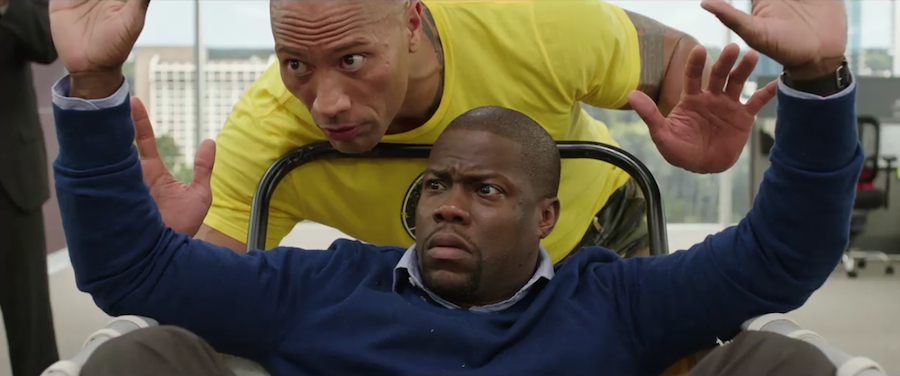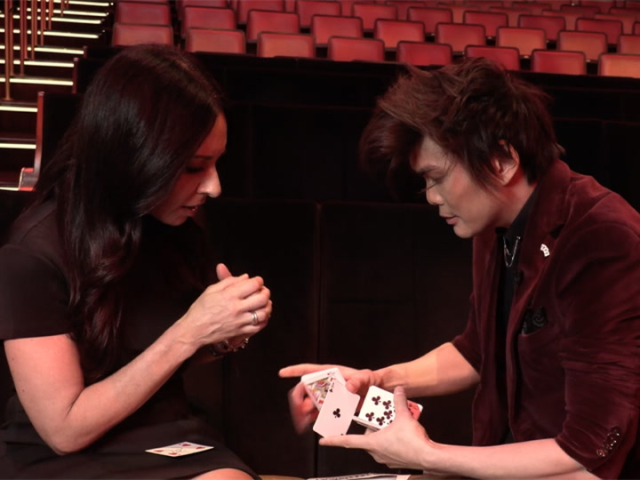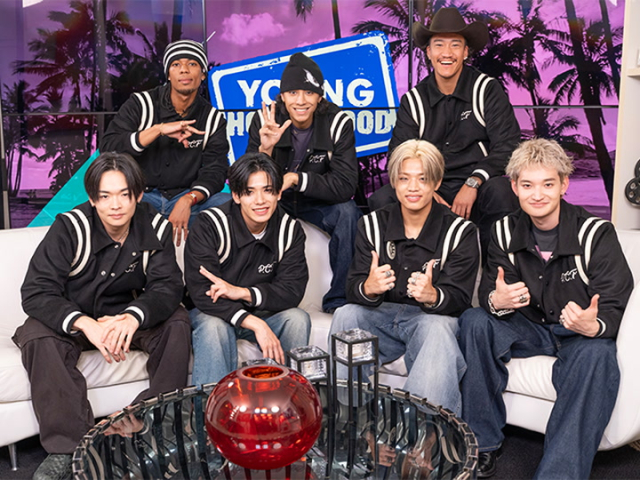SECOND CHANCE CINEMA: 'Central Intelligence'

Bullying is a tricky issue to get right, but it seems that, with the epidemic of bullying going on in this country, it shouldn’t be too hard to find at least a handful of people who can give some proper insight. And yet, Hollywood being what it is, many times those difficult real-life issues can get a proper glossing over, thereby losing the impact it was originally intended to deliver.
To that end, may I suggest to you the 2016 movie Central Intelligence? Yes, the 2016 Kevin Hart/Dwayne Johnson action-comedy. Yes, really.
The movie sort of came and went from the theatres without a great deal of hubbub – just another typical buddy action movie, nothing to see here, right? The film received a mediocre 61% Audience Score on Rotten Tomatoes – not horrible but not great either. I remember a friend of mine, who works in a movie theatre, telling me that it was a lot better than she expected, though she didn’t go into details. So when I saw it pop up on basic cable one weekend, I thought what the heck…
Needless to say, I was not expecting THAT. Central Intelligence is the story of a rogue CIA Agent Bob Stone (Johnson) who endured traumatic bullying in high school due to being overweight but later goes on to become… well, The Rock. He reunites with the former BMOC Calvin Joyner (Hart), who had shown him kindness in his moment of humiliation, and snares him into his spy agent intrigue. Wackiness then ensues. It’s a decent action-comedy, but it stands out because it handles the issue of trauma due to childhood bullying way more realistically than any other movie or TV show that I can recall.
First things first – in the opening scene of the film, Calvin is giving an inspirational speech at a pep rally in the gym. Meanwhile, in the boys locker room, Bob is dragged out of the showers by a group of bullies and thrown naked out onto the gym floor in the middle of Calvin’s speech. The whole school, of course, points and laughs at poor Bob, naked, wet, and humiliated. Calvin does not join in the carousing, however. He is mortified for Bob and offers his letterman jacket to the kid to cover up with. Bob manages to mouth a “thank you” before bolting out of the gym, never to be seen or heard from by his classmates again.
A couple things worth pointing out here – firstly, when we’re introduced to high school-age Bob, he is not doing some stereotypical “fat person” stuff, like eating his feelings or sitting alone at lunch or generally feeling bad about himself. No, he is in the shower, singing along to En Vogue on a boombox, shaking his stuff and loving life. It’s played for laughs, sure, but it’s clear that this is a kid who is not unhappy. He’s only made to feel so by the idiots who humiliate him. The other thing I want to note, which is also rather atypical for a movie like this, is that Calvin is a genuinely good guy from the start who feels compassion for Bob. This is not one of those tropes where Guy Who Bullied Other Guy In High School Gets His Comeuppance Years Later When Bullied Guy Becomes Ripped.
Later on in the movie, after Calvin becomes a reluctant accomplice in Bob’s messy misunderstanding with the rest of the CIA, the two visit a bank in order to obtain an access code they need for some shady offshore accounts. The unfortunate twist is, the man they need to go see was the ringleader of Bob’s assault in the opening scene, Trevor (played by Jason Bateman with superb smarminess). Now, in any other movie of this nature, this is where The Rock would stand tall and muscular in the face of his tormentor and get his sweet, sweet revenge. After all, we’d seen him kick numerous asses in previous scenes. But no, that’s not what happens at all. Faced once more with his abuser, Bob completely shuts down. He can’t even look at him, let alone speak to him. At one point, Trevor feigns an apology to Bob but then laughs and says he doesn’t regret a thing. “Once a fat kid, always a fat kid,” he spits at him. Bob then goes right back into PTSD mode. Calvin even tries to encourage him to kick his ass, but instead Bob just gets up and leaves the office. Calvin follows, again appalled by his former classmate’s behavior. Outside, Calvin questions what happened, and Bob apologizes, but neither Calvin nor the narrative judge him or make it seem like he was “weak” in that moment. And right there, folks, is how actual childhood trauma works. No matter how pretty or accomplished you manage to become, on some level, a part of you will always feel like that unworthy, abused kid. As Trevor berates Bob, the latter catches his reflection in a window – not of The Rock he is now but of the overweight kid he used to be.
Throughout the movie, it is made clear again and again that getting muscular and studly and becoming a kick-ass spy was not a “magical” cure for Bob. He is still awkward and kind of a weirdo, and at one point he even sadly admits to Calvin that he has no real friends. Being physically more appealing has helped him to be more outgoing, but it has not done any real healing for his psyche or the damage inflicted on him as a child.
At the end of the movie (spoiler alert?), Bob and Calvin attend their 20-year high school reunion, where Bob is elected Homecoming King and takes the stage to make a speech, during which he strips down completely naked. This struck me as kind of odd at first, but then I remembered something from earlier in the film: In their first meeting as adults, Bob admits to Calvin that he never allows anyone to see him naked, even though he is now physical perfection. And it makes sense that he would feel that way, as his biggest humiliation was being forcibly exposed to his entire high school class. All these people saw him naked before nonconsensually, but now he takes back his power by letting them see him naked himself, on his own terms. Immediately afterwards, Bob is approached by an old classmate, Darla (played by Melissa McCarthy). She gazes lovingly at him and remarks that he still has the same beautiful eyes and smile that she remembers. She makes no mention at all of his gleaming pecs and perfect abs. She sees him as he was before, and both versions of him are perfect in her bespectacled eyes.
Oh, and he does finally get his “revenge” on Trevor by knocking him out, but only after Trevor instigates by shoving him, initiating a kneejerk response from the trained CIA agent. All’s well that ends well.
But perhaps the best part of this movie – the part that should serve as the most inspirational and motivational – is that Bob never ever loses his playful spark or his kindness. He never says that the incident in the gym is what actually motivated him to get in shape, but he has certainly not allowed his negative experiences to turn him into a jaded, cynical adult cursing his abusers and seeking some sort of “vengeance”. No, he simply moved on and bettered himself on his own terms and continued loving life the same way we saw in the opening scene of the film before malevolent external forces barged their way into his space and tried to tell him he was wrong. But he didn’t let them, and that is, honestly, the best “revenge”.
Stream Central Intelligence on Max and fuboTV.



